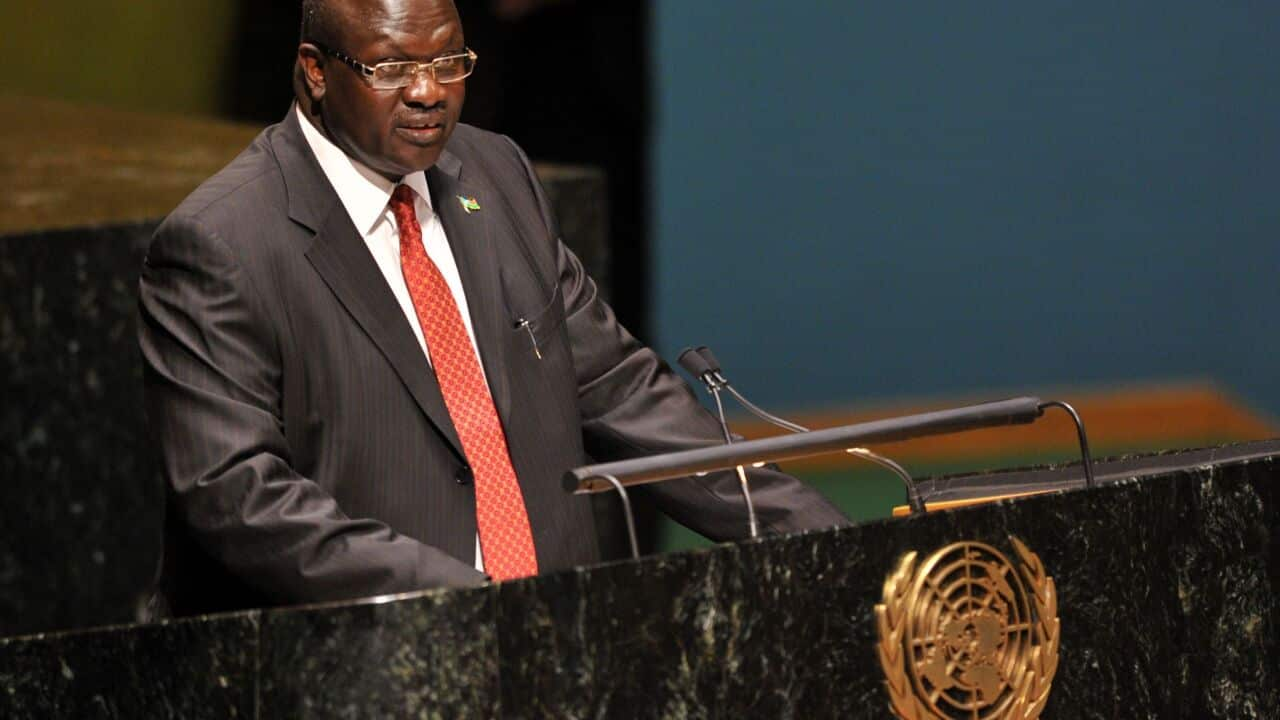(Transcript from World News Australia Radio)
The president of South Sudan, Salva Kiir, says his rival, former vice president Riek Machar, started the violence in an attempt to overthrow the government.
Peggy Giakoumelos reports.
(Click on audio tab above to hear full item)
Fierce fighting in the capital of the newly-independent nation sent hundreds of terrified civilians to seek shelter in a United Nations compound.
This man describes the chaos.
"I came here because I can't live in the quarter: there's a lot of killing, a lot of people just come to your house and collect all you have in your house. I was forced to come back here with my children because people have been dying."
There had been tension in the capital since President Salva Kiir sacked his deputy, Riek Machar, in July.
Mr Kiir blames soldiers loyal to Riek Machar for the outbreak of violence.
Officials say some arrests have been made, but the fate of Mr Machar remains unclear.
Mr Machar leads a dissident group within South Sudan's ruling party, the Sudan People's Liberation Movement, and is seen as the main challenger to President Kiir.
As a result of the violence, President Kiir has imposed a night-time curfew which will remain in force until further notice.
"I would like to inform you all, my dear citizens, that your government is in full control of the security situation in Juba."
The United Nations is reporting that of the hundreds of civilians who sought shelter at United Nations facilities, the majority are women and children.
One of those is Juba resident, Mary Kiden.
"There are many many people who have run away and there are also people who have been killed. Now there is a woman who has a baby and the baby was shot in the back and has died."
Lydia Gitau, from the Centre for Peace and Conflict studies at the University of Sydney, is researching peace-building and trauma healing in South Sudan.
She says the current factional unrest in the country has a long history but peace-building initiatives have also had some success.
Despite this, she says refugees continue to pour into neighbouring Kenya to escape ongoing unrest.
"We have had quite a number of interventions by the UN mission and NGOs. We've also had some local groups who have done a lot of work in the country attempting to do that. But there needs to be more, especially grass-roots oriented, peace-building initiatives. There has been a major flow of refugees coming from South Sudan in Kenya. We have thousands of refugees flowing into the camps every week from South Sudan because of the continuing conflict and the conflict especially right now between the different tribes in South Sudan seems to be causing a lot of unrest that is making people go to the camps."
South Sudan's government has struggled to establish a functioning state since declaring independence from Sudan in 2011 to become Africa's newest nation.
Presidential elections in South Sudan are scheduled to take place in early 2015.

